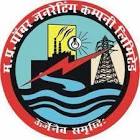Madhya Pradesh State Electricity Board

Total capacity of implemented projects
50 - 250 MW
Countries of projects presence
1
Power, Wind Power, Solar Power, and Biomass Power
Madhya Pradesh State Electricity Board (MPSEB) is a state-owned electricity board that is responsible for the generation, transmission, and distribution of electricity in the state of Madhya Pradesh in India. The board was established in 1955 and has since been playing a crucial role in the development of the state's power sector. Over the years, the board has been actively involved in the development of renewable energy projects in the state, with a focus on small hydro power, wind power, solar power, and biomass power.
Small Hydro Power
Small hydro power is a form of renewable energy that harnesses the power of flowing water to generate electricity. MPSEB has been actively involved in the development of small hydro power projects in the state, with a focus on utilizing the state's abundant water resources. The board has identified several potential sites for small hydro power projects and has been working towards their development.
One of the key small hydro power projects developed by MPSEB is the 2.5 MW Bargi Dam Hydroelectric Power Station. The project is located on the Narmada River and utilizes the water released from the Bargi Dam to generate electricity. The project was commissioned in 1990 and has been supplying electricity to the state grid ever since.
Wind Power
Wind power is another form of renewable energy that MPSEB has been actively involved in. The state of Madhya Pradesh has a vast potential for wind power generation, with several windy areas located across the state. MPSEB has identified several potential sites for wind power projects and has been working towards their development.
One of the key wind power projects developed by MPSEB is the 25.5 MW Dhar Wind Power Project. The project is located in the Dhar district of Madhya Pradesh and consists of 17 wind turbines with a capacity of 1.5 MW each. The project was commissioned in 2012 and has been supplying electricity to the state grid ever since.
Solar Power
Solar power is a form of renewable energy that harnesses the power of the sun to generate electricity. MPSEB has been actively involved in the development of solar power projects in the state, with a focus on utilizing the state's abundant sunlight. The board has identified several potential sites for solar power projects and has been working towards their development.
One of the key solar power projects developed by MPSEB is the 25 MW Neemuch Solar Power Project. The project is located in the Neemuch district of Madhya Pradesh and consists of 100,000 solar panels. The project was commissioned in 2018 and has been supplying electricity to the state grid ever since.
Biomass Power
Biomass power is a form of renewable energy that utilizes organic matter such as wood chips, agricultural waste, and municipal solid waste to generate electricity. MPSEB has been actively involved in the development of biomass power projects in the state, with a focus on utilizing the state's abundant biomass resources. The board has identified several potential sites for biomass power projects and has been working towards their development.
One of the key biomass power projects developed by MPSEB is the 10 MW Biomass Power Plant in Chhindwara. The project utilizes agricultural waste such as rice husk and cotton stalks to generate electricity. The project was commissioned in 2013 and has been supplying electricity to the state grid ever since.
Conclusion
MPSEB has been playing a crucial role in the development of renewable energy projects in the state of Madhya Pradesh. The board has been actively involved in the development of small hydro power, wind power, solar power, and biomass power projects, with a focus on utilizing the state's abundant natural resources. These projects have not only helped in meeting the state's growing energy demands but have also contributed towards reducing the state's carbon footprint. With the increasing focus on renewable energy, MPSEB is well-positioned to continue its efforts towards the development of clean and sustainable energy projects in the state.